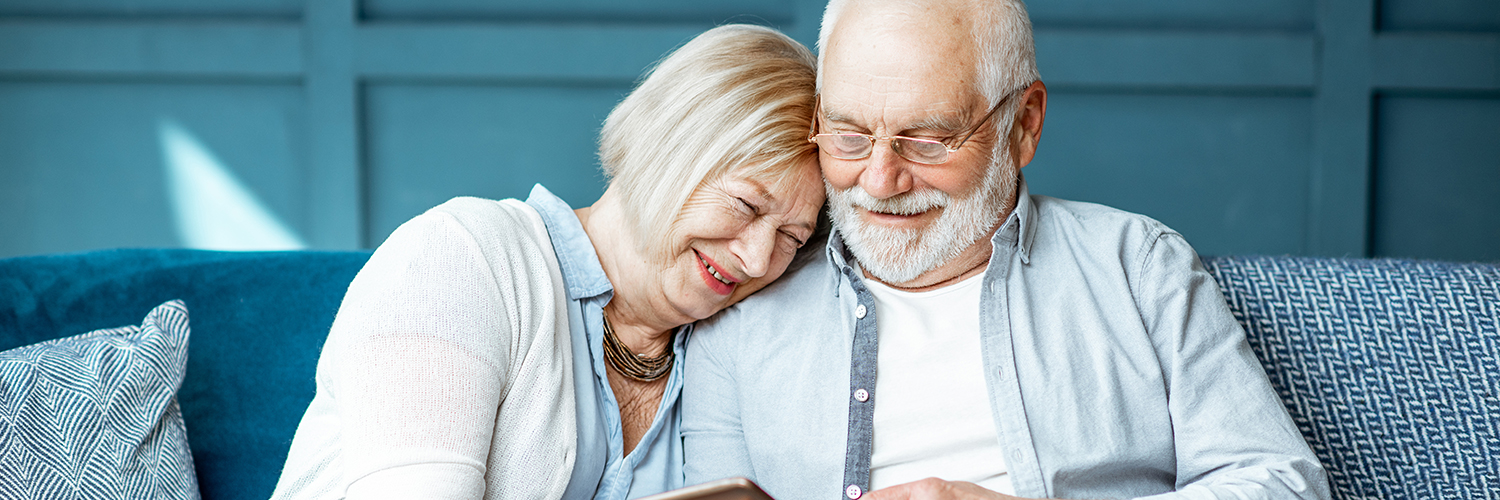WEARABLE TECH & YOUR HEART
With the explosion of smartphones and other mobile devices, it seems like there is a gadget or app for just about everything, including your health.
Digital devices that you can wear—also called “wearables” or “wearable devices”—are helping people track their health and take steps to improve it. But you should know that wearable technology can’t replace your health care team.
The U.S. Food and Drug Administration (FDA) regulates medical devices for safety and effectiveness. Although some mobile medical apps and accessories are approved by the FDA as medical devices, most are not. In the future, this technology may help us improve care and outcomes for people with heart disease, but more research is needed. To help identify the best ways to use the technology, wearables are being tested in clinical trials.
Learn more about these devices and what they can do today.
Wearables, also called wearable devices, are digital devices that you can wear. They include:
- Activity trackers
- Smartwatches
- Digital or mobile health devices to keep an eye on blood pressure, blood sugar, heart rate and rhythm
For example, these devices can be worn on your wrist or as a patch on your chest or stomach. They often include tiny sensors that collect and then sync information to your smartphone or tablet. You can track how active you’ve been from day to day. You can also record calories burned, your sleep habits, breathing or heart rate.
Wearables are also playing a role in managing diseases such as diabetes and atrial fibrillation.
Diabetes: One FDA-approved wearable helps people manage diabetes. A sensor placed just under the skin allows blood sugar levels to be checked round-the-clock. The user gets an alert if their blood sugar level is too high or too low. This means people with diabetes no longer need to prick their fingers to check blood sugar levels. Such close monitoring may ultimately help to prevent complications, such as problems with the eyes, kidneys or nerves, as well as stroke or heart disease. But further study is needed.
Atrial Fibrillation: Some smartwatches record the electrical activity of the heart, called an electrocardiogram or ECG, and can notify the wearer of an abnormal heart rhythm or heartbeat. The ones that have been FDA-approved are helpful for people with atrial fibrillation. But experts say people who use mobile ECGs should check results with their health care team. An abnormal reading might turn out to be a false alarm.
Wearables are tools that can help you:
- Become more active and monitor your own health
- Track certain health habits and measures (for example, blood pressure, heart rate, activity levels)
- Set health your own wellness goals
Overall, they can assist with your care and teach you more about your health and patterns of health behaviors.
Depending on the digital device or health app that is used, data may be collected in any of the following ways:
- At random
- When symptoms are detected
- All the time
But wearables have limitations. They don’t replace your health care team, any tests ordered by them or follow-up visits.
You also should not rely on wearable technology to replace any tests you take during a health visit. For example, the electrocardiogram or Holter monitor that is offered through your doctor’s office are very important in your care.
Bottom line: Any digital health device or mobile app should be used in partnership with your health care team.
Wearables and health apps are not for everyone. Popular devices don’t appeal to all whether it’s because of personal preference, privacy concerns, or cost. But what are good ways to start using a wearable device?
In one scenario, your health care professional might suggest it to help you set medication reminders or boost your activity level by tracking the number of steps you take each day. It might also help you measure and report your blood sugar levels or blood pressure. In another scenario, if you’re interested in wearable technology you might bring it up with your care team. Together you can decide how it might help support your health.
Wearables help people:
- Monitor health measures such as blood pressure, blood sugar levels, and heart rhythm
- Track and report symptoms (one day some wearables may be used to talk remotely with a health care professional)
- Collect and track health data and see trends over time (for example, sleep and fitness patterns, lab results)
- Set health goals
- Self-motivate and feel more accountable—for example, to be more active, take more steps each day
- Set reminders, such as a daily alarm, to take a medicine
These technologies allow people to collect data in between health visits. Many devices can display real-time readings on your phone or smartwatch and send you alerts such as how long you slept or texts to urge you to exercise, which can be motivating.
It seems many people are using the information from these devices. A survey by the Pew Research Center found that of people who live with a chronic medical condition and use some sort of app or technology to track their symptoms, about half say that doing so has:
- Changed how they approach their care
- Led them to ask their doctor new questions or seek a second opinion
In addition, 4 out of 10 people surveyed say it has affected a health care decision, according to the Pew Research Center.
- Any digital devices and health apps that you use
- Privacy concerns
- Clinical trials that are available and that you might benefit from
Consider asking:
- Do you recommend that I use a wearable device or app? If so, which would you suggest?
- How will you use this type of data? Is it recorded in my health record or patient portal?
- What measures should I keep track of and report to you in between my visits?
- Are there any risks or downsides to using or relying on these digital technologies?
- Is there any evidence that using this will help with my health care?
A great team player, all of the nursing staff are very happy to work with Salahaddin as he is polite, efficient, and has a great aura of calmness and competence and appreciates the time to be light-hearted.
What I valued as much as his erudition was his people skills, he related to everyone as an individual, his understanding, communications, interactions and personable nature were exceptional. Dr Ubaid was quite simply staggering, he is somebody that has had a significant impact on me, not just for giving me my life back and for his medical genius but for being the person that he is.
Your kindness and good humour were very much appreciated and certainly put me at ease throughout the procedure, which on other ocassions has been quite daunting, your relaxed approach to my problem was very calm and professional.
In Dr Salahaddin Ubaid I had a medical genius who also contributed significantly to aiding me overcome all of the negative worries and emotions I was feeling. The care he provided to me, his attention to detail, his personal knowledge, expertise, experience and skills was outstanding.
Dr Ubaid works well with all the staff. His approach to his fellow workers is both patient and respectful. His easy going manner makes him very approachable to ask advice and he accommodates any delays graciously. I personally look forward to working with him.
His presence radiates a warmth, he instils confidence in all those around him, he sets an example for others to follow and is a role model for others to aspire to be like. He was kind, courteous, professional, understanding, caring and highly approachable and relatable as well as the medical guru we all benefit from and rely on to give us our lives back.
In life we all need role models, if I was in training to be a doctor you would certainly fit that role for me. I thank you so much for what you have done to allow me to continue with my fitness regime and wish you well in the life ahead of you.






